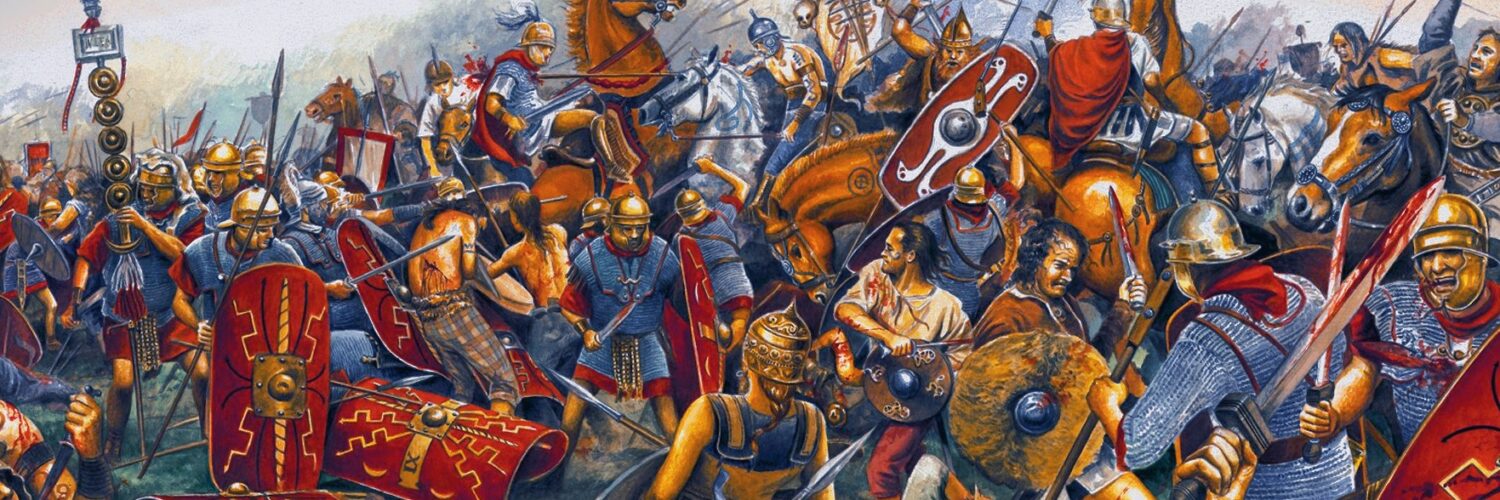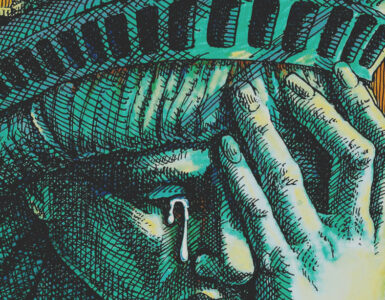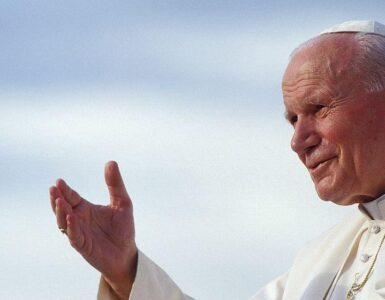When I was in high school, every sophomore had to read Caesar’s Gallic Wars. The first line has stayed with me ever since. Omnes Gallia tres partes, which translates to All Gaul is divided into three parts, namely Gallia Celtica, Belgica and Aquitania. Today, the United States has become divided into duas partes of diametrically opposed ideas. The first began in Bethlehem over 2000 years ago and the other arguably goes back to a fruit tree in the first Garden.
One of my favorite Billy Joel songs was,We Didn’t start the fire. Its first stanza begins: Since the world’s been turning, We didn’t start the fire…But we tried to fight it. One could easily trace the first flames to the Garden of Eden when Eve and Adam lit the first Biblical match.
Since the subsequent Fall of Man, the world has been burning in an inferno of revolutionary fervor that has turned the pages of history into a brace of smoldering ideas that have set the world on fire. These intellectual wars have assumed many new skins, pigmentation and hues over the centuries.
Virtually all ideas of revolutionary change have sprung from their respective wellsprings. We mainly use easy terms, such as left and right or possibly liberal and conservative to describe the two sides. Both have their own evolving derivatives, such as Marxism, Communism and Progressivism versus Traditionalism, Conservativism and so on. Like literary dramas, they are all just variations on a theme.
The early Christians found their nascent faith under attack from the times of Nero who literary burned down their section of Rome while he played his lyre. Later, Christians suffered from the intellectual assaults of the first notable heresy, Gnosticism. This is an elitist faith that assigned special privilege to the chosen few, whose intuitive knowledge would rule the world. Its influence is widely apparent, even in today’s cultural battles. This early conflict evolved into a bifurcated conflict that St. Augustine aptly described as the City of God versus the City of Man. In today’s parlance this plays as Traditionalism vs. Relativism.
In the 18th century, the French Revolution attempted to make the world anew and with it change the moral nature of mankind. This was the most revolutionary idea to come down the path since Jesus Christ instituted a new religion that promised not an earthly paradise but a future life with the Triune God in a Kingdom with many mansions.
This pie in the sky was repulsive to the intellectuals of the French coffeehouses and the soirées that proclaimed a new world of Liberty, Fraternity and Equality. Since then, this has proved to be no more than an abstract illusion that promised an uncertain future with cake on the lake. The French Revolution later gave life and sustenance to a squad of imitation revolutions in Russia, Asia and Africa.
The heirs to this thinking later conceptualized their dogma into Marxism, Socialism, Liberalism and Progressivism all of which attempted to create a utopian paradise that promised a new Eden, a veritable garden of earthly delights. It would be one devoid of a Cross and an emptying of one’s ego. As quickly as inchoate utopias cropped up, in imitation, they were swiftly dashed on the rocks of reality.
In the United States it was the brilliant socialist, Robert Croly, whose book, The Promise of American Life, published in 1907, created a reliable paradigm that has propelled progressives in this country into the political driver’s seat amid a declining Christendom. His new thought radically changed American thinking, ostensibly leading to the rejection of a 1000 years of Western Civilization.
To affect this Croly melded the Big Government philosophy of Secretary of the Treasury, Alexander Hamilton, which was designed specifically to establish American capitalism with the agrarian philosophy of Thomas Jefferson that despised government of any kind and sought to sustain the predominantly agrarian class.
By turning this part of the American givenness on its head, Croly succeeded in establishing a historic paradigm where a political elite used the power of Big Government to help and entitle millions of the poor and indigent. In the 20th century, these ideas assumed the shape and form of a full-fledged war of two distinct cultures, paralleling the American Civil War in the previous century. On the one side was the traditional thinking of Western Civilization with its profound respect for law, marriage, sexual morality, the family and private property. The progressives countered with a morass of moral relativism that produced an immoral and spiritual chaos that has impacted the United States for several generations to come.
Barack Obama was the first Democratic president to push the moral envelope of checks and balances off the table of reality, in order to accelerate this transformation. When he was president he played his part as a country disorganizer like a virtuoso. He religiously followed the primary rules of his posthumous mentor, Saul Alinsky’s in giving power, not to the Princes, but to the poor. His two terms were morally destructive years for the country. He stabilized the abortion industry as a veritable American institution. He promoted gay culture, including marriage to the extent that homosexuals now have near-veto power over the free practice of property rights and religious freedom. He brought more social democracy to America and with it, higher taxes, draconian regulations, a decline in the private economy and investment, the transfer of millions of private jobs to public unions and billions of taxpayer dollars to his crony supporters in the unions.
Since then, law enforcement has declined to the extent that policemen are afraid to do their jobs for fear of Justice Department persecutions. Public safety has mirrored this with a huge increase of murders in all major metropolitan areas as gangs, many composed of illegal immigrants and drug cartel members, roam the mean streets with impunity. Since Obama, the Left has won battles on several cultural fronts. As hard as valiant traditionalists have fought the battle, the Left has too many willing accomplices in academia, the mainstream media and every level of government that it feels a kinship with George Armstrong Custer in South Dakota in 1876. The short-lived and beleaguered presidency of Donald Trump validated his controversial legacy with the overturning of the infamous Roe v. Wade decision. It was his three superb nominees to the Supreme Court who finally turned the tide against Roe, arguably in league with Dred Scott as the worst Supreme Court decision in the country’s history.
Pope Francis’ 2015 visit to the United States also underscored how vast the transformation of American culture has become in the Catholic Church. His attacks on capitalism and free trade, as well as his calls for economic equality in an unequal world, not only betrayed a vast ignorance of how prosperity is created but smacked more of Karl Marx than Jesus Christ. As economic historian David S. Landes said, The world has never been a level playing field. No one can make that a reality, not even a pope. Noted economist, Thomas Sowell points out how little the pope understands the root causes and solutions for poverty.
In the 1980s the U.S. Conference of Catholic Bishops, published a document, entitled Pastoral Letter on Catholic Social Teaching and the U.S. Economy. This document has worked at cross-purposes with the traditional teachings of the Church and the prosperity and culture of the United States. The specifics of the Pastoral Letter reflect far more of the secular Enlightenment of the 18th century than they do Catholic traditions.
Archbishop Weakland admitted that such an Enlightenment figure as Thomas Paine is now coming back through a strange channel. Perhaps some of the Cardinals and bishops are unaware that Paine rejected the teachings of any church that I know of, including the Church of Rome. To base social or moral principles on the philosophy of the 18th-century Enlightenment and then call the result Catholic teachings is disingenuous and unworthy of any Catholic prelate.
This set of secular ideas does nothing to predispose the traditional faithful to the sermons, admonitions and teachings of Pope Francis. If anything, it further divided the Catholic Church.
The ideological Left in the Vatican blithely throws around the phrase the poor, blaming poverty on what other people are doing to or for the poor. According to Dr. Sowell it is not poverty, but prosperity, that needs explaining.
Consider which has a better track record of helping the less fortunate — fighting for a bigger slice of the economic pie, or producing a bigger pie? In 1900, only 3 percent of American homes had electric lights but more than 99 percent had them before the end of the century. Infant mortality rates were 165 per thousand in 1900 and seven per thousand by 1997. A scholar specializing in the study of Latin America said that the official poverty level in the United States is in the upper middle class in Mexico.
The much-maligned market economy of the United States has done far more for the poor than the ideology of the Left. Poverty is a natural given but prosperity requires many things — none of which is equally distributed around the world or even within a given society. Geographic settings are radically different, both among nations and within nations—especially climate factors. So are demographic differences, with some nations having a median age over 40 and others having a median age under 20. Cultures are also radically different in many ways, especially in the way they approach work, development, education and personal responsibility. This means that some groups have several times as much adult work experience as others. The pope’s own native Argentina was once among the leading economies of the world, until it was virtually ruined by the kind of ideological notions of social democracy Pope Francis is now promoting around the world.
On another front, despite his bromides about taking care of the planet, his acceptance of the Leftist agenda-driven theory of unproven man-made-man climate change, endangered the world’s population. In doing so the pope has put his papal power and moral authority in league with a legion of population control fanatics, abortionists, euthanasia promoters and death panel advocates, putting the pope’s beloved poor at far greater risk than any faux environmental theory.
While the world is aflame with a myriad of cultural and political issues, I see a different kind of flame within the Church. Personally, I do not see a Church in pious flame, like Bishop Robert Baron’s popular World on Fire for love of Jesus Christ and the Church. I sense more an indifference to the Church and its teachings that has permeated virtually every demographic. People just do not seem to care because they have better things to do with their mental and physical energies. An active faith seems not to enjoy a high priority anymore.
What there is may be more comparable to a lukewarm flame that does not consume nor warm but just sucks the oxygen out of the Faith. This is all the result of the loss of the Garden–or what David Hume called the twisted timber of humanity. With worldly ideas such as much of the above, stroking the embers, the Church needs a legion of volunteer firemen to extinguish the flames of indifference before they suffocate us all.






























